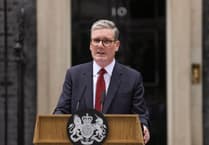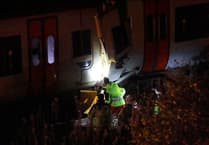Withwar in Ukraine and the Middle East raging, massive debts piling up in western economies and no government seriously tackling the climate and biodiversity crises, I feel instability is nigh. A resilient society can cope with unexpected knocks such as a pandemic. We weren’t prepared for Covid-19, and neither are we for the other crises we face.
The Energy Crisis Commission’s Chair, David Laws, warned this week that the UK is very vulnerable to sudden fossil fuel price hikes and is still far too reliant on imported energy products, especially gas. Our modern society is predicated on cheap oil, hence it’s difficult for most people to see how we untangle ourselves from it. But cheap oil is a pipe dream.
I remember the 1973 oil crisis well. OPEC countries had an oil embargo on the Netherlands (where I lived then) due to its support for Israel. No cars were allowed out on Sundays and many prices shot up. Now it could be because Iran’s oil facilities are bombed or because Iran blocks the Strait of Hormuz. Milford Haven handles around 20 percent of UK’s gas supply which is shipped from Qatar and needs to go through this Strait.
A resilient economy isn’t reliant on oil and gas. Our housing stock urgently needs to be insulated, and heated using home-generated electricity. In a resilient economy services are as close to people as possible and most food is locally produced. Those services that cannot be in every community must be accessible by decent public transport.
A resilient environment has its countryside managed in ways where farmers are supported to move away from oil-dependent practices such as chucking artificial fertilisers on their fields and importing animal feeds, where they improve soils to hold onto nutrients and store carbon dioxide. Peatlands would be restored, new woodlands created, rivers and seas cleaned so that fish stocks return to sustainable levels. The COP16 meeting on biodiversity in Colombia this week is another chance for the UK to reset its policies for reaching 30 percent of land and sea to be protected by 2030.
In politically resilient communities, citizens participate in meaningful debate. Our current crop of decision makers need to take note as there’s an undercurrent of dissatisfaction right now with people threatening to withhold their council tax. Price hikes and services being out of reach lead to anger and anarchy.
There’s a movement to create 15 minute communities in urban areas. Proponents argue that essential services should be within 15 minutes’ walk from people’s homes so that most services can be reached without the need to get into a car, services like shops, schools, doctors’ surgeries, libraries and leisure facilities.
Such 15 minutes communities are hard to achieve in our rural counties. That doesn’t mean councils move in the opposite direction. Reliance on the private car to access essential services is not resilient. Moving services away from centres is the epitome of stupidity. Closing village schools, moving libraries away from town centres, allowing out of town supermarkets to be built, all these things are blinkered car-centred thinking.
Hywel Dda has plans to build a state-of-the-art hospital near Narberth and closing Glangwili and Withybush. While I understand the arguments from a clinical perspective, Hywel Dda staff clearly has not answered concerns regarding the transport problems such plans will create.
And there is the nub of the problem: transport. Whichever way we look at it, transport is key. The less we need to travel to access services, the more resilient our society will be. The era of cheap oil is surely over. I wish our decision makers understood this.




